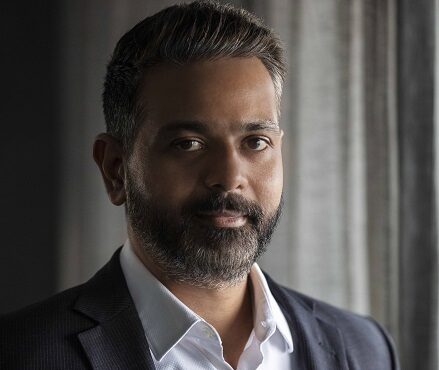
CXOToday has engaged in an exclusive interview with Aastha Sharma, Co-founder & Chief Evangelist, Veris and Lee Odess, CEO of Access Control Executive Brief.
1. What led to the idea of bringing together individuals, who are at the forefront of shaping modern workplaces?
The idea behind this initiative is rooted in ‘Work The Talk’, my podcast under the Veris Banner. I continually engage in numerous conversations with leaders and experts in the field of workplace management. These interactions provide me with valuable insights into the complexities of modern-day office spaces.
As I dived deep into these discussions, I realized that the modern workplace is a multifaceted entity influenced by various factors. From security protocols and administrative processes to technology adoption, human resource management, and employee expectations, each aspect plays a crucial role in shaping the contemporary world of work.
Traditionally, these aspects were often scrutinized in isolation, leading to fragmented perspectives. However, my conversations highlighted the need for a more comprehensive and unified view of the modern workplace. This led to the idea of bringing together leaders from different domains and organizations to collectively define the future of work.
This event is a reflection of the power of collaboration and cross-disciplinary discussions. It emphasizes the importance of creating a unified narrative for the modern workplace, one that addresses its diverse challenges and opportunities. By gathering thought leaders from various backgrounds, our goal is to shape a future workplace that promotes smart decision-making, adaptability, and prosperity for all stakeholders.
2. How did the collaboration with Lee Odess, CEO of Access Control Executive Brief come about?
During one of my podcast episodes, I had the distinct pleasure of hosting Lee, and I must say, I was absolutely blown away by his profound insights and unparalleled industry experience. Lee’s perspective on access control is nothing short of visionary. He emphasized that every system facilitating gated entrances, whether in the physical or digital domain, essentially constitutes a form of access control. It’s a perspective that goes beyond hardware and dives into the very fabric of how employees interact with their workspace.
In an era where modern workplaces are evolving towards greater intuitiveness and seamlessness, Lee’s vision is exceptionally relevant. We’re talking about a staggering $70 billion opportunity within this industry, and Lee is undeniably the global authority who comprehends the full extent of this potential. The collaboration between Lee Odess and Veris, especially on the occasion of Lee’s maiden trip to India and Veris’ inaugural event in the country, was not just a logical step; it was an imperative one for the workplace community. Together, we’re poised to unlock the future of workplace experiences, where access control seamlessly integrates with the broader landscape of workplace management. It’s an exciting journey, and I’m thrilled to be a part of it.
3. How will this collaboration impact the overall market for workplace management solutions?
This collaboration is set to make a strong impact on the broader market for workplace management solutions. By uniting industry leaders, it creates an environment conducive to innovation and knowledge exchange. This spirit will expedite the development and deployment of cutting-edge workplace technologies focussed on the stated gaps, resulting in a faster-paced, more competitive market landscape. Customers will benefit from a wider array of options and increasingly sophisticated solutions tailored to their diverse requirements.
In a multifaceted workplace technology landscape, where various tools offer specific point solutions like visitor management, space scheduling, workplace apps & more , collaboration among competitors becomes essential. Organizations often have existing technology infrastructure that manage these pointed asks, and the challenge lies in bridging small gaps that create inefficiencies & choke-points or executing complete legacy replacements. Whether addressing these nuances or working on greenfield projects, the ecosystem must collaborate to ensure a seamless in-office journey. The focus should shift from individual vendors to a collective effort. The classic example is how Veris collaborates with partners like Bosch and Suprema to create integrated journeys, showcasing the future of workplaces. This co-opetition approach ensures success for the customer and the ecosystem as a whole, further enhancing the market for workplace management solutions.
4. How does Veris modern workplace management ensure workplace safety?
Veris is not merely a tool; it’s an experience. An experience that begins with the warmest welcomes, creating indelible first impressions for guests & employees alike. It offers the luxury of space on-demand, ensuring employees have workspaces and meeting rooms precisely when required. The vision is straightforward: foster an environment where workflow is uninterrupted and distractions are non-existent. Veris achieves this by integrating workplace services at your fingertips, using smart insights to derive detailed analytics. This data-rich approach paves the way for informed decisions, personalized nudges, and an intuitive concierge service.However, where Veris truly excels is in its commitment to safety and care. Its robust security features ensure guests are identified and authorized seamlessly, blending sophisticated face recognition with top-tier security. It doesn’t stop there — Veris watches over office perimeters smartly, managing potential threats, and handling emergencies with precision, ensuring Health, Safety, and Environmental (HSE) compliances are always met.When it comes to employees, we bring an employee-first approach. They cam book spaces that suit their preferences, navigate offices seamlessly, and even optimize meal breaks for uninterrupted productivity. The idea is to let employees interact with the workplace in the most natural way possible. This also means engaging with feedback effectively, implementing industry rules without hassles, making privacy a priority, and ensuring health, safety, and environment are more than mere check-boxes — they’re experiences.
5. What transformations do modern workplaces need in terms of access control?
A modern access control system in the workplace goes beyond traditional safety and security measures. While it still keeps “bad people” out and ensures the locking and unlocking of spaces, the expectations have evolved. The focus now is that we deliver safety and security, but we also let the right people in and enable operational efficiency and revenue generation. This requires embracing seamless technology that can accurately identify and authenticate individuals, such as tapping your phone at a turnstile or utilizing facial recognition to call an elevator. By leveraging these technologies, modern access control systems can enhance operational workflows, such as automatically reserving meeting rooms, and facilitate revenue generation, such as enabling food purchases or automated parking payments. Ultimately, access control serves as the foundation for modern use cases, providing utility and value in the workplace.
6. What were the biggest takeaways as you met industry leaders in India from across diverse verticals?
When meeting industry leaders in India from diverse verticals, my biggest takeaway was the vibrant community. It is impossible to fully appreciate it unless you come to the country and meet the people behind the companies. Not only were they hospitable and eager to learn about global happenings, but they also had a strong desire to share their perspectives, ideas, experiences, and thoughts. This level of openness was refreshing and exciting. The pride of India was evident throughout our interactions. Additionally, there was a common desire for practical technology adoption that brings value and ensures a positive return on investment and total cost of ownership. The advanced infrastructure, such as 5G/6G and the widespread usage of QR codes for payment, along with the depth of talent, provides a clear advantage. While the specific applications and use cases varied across verticals, the core principles remained consistent.
7. What are the future plans with respect to the partnership with Veris?








